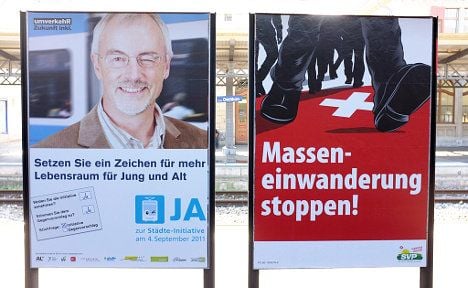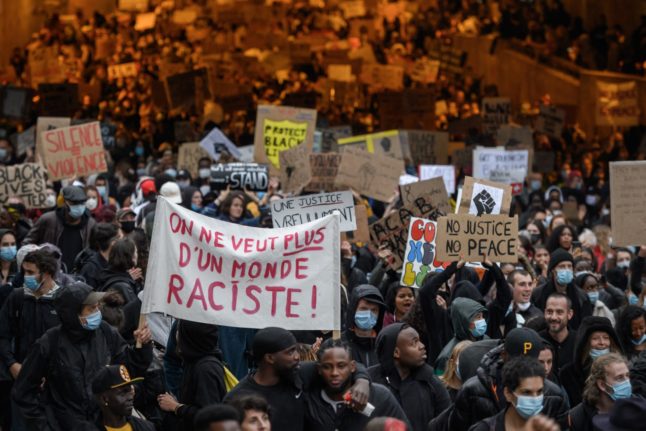The ECHR Commissioner Thomas Hammarberg sent his strongly worded letter earlier this month to Swiss foreign minister Didier Burkhalter.
“Manifestations of racism and xenophobia appear to be on the rise in Switzerland. Disturbing political campaigns with aggressive, insulting slogans against foreigners are tendencies of great concern,” the letter read.
Hammarberg said that he recognized “the value and importance of an open political debate”, but went on to say that freedom of expression should not be absolute.
“It can and at times must be restricted by the authorities in order to safeguard the human rights and fundamental freedoms of others,” he said.
A cause for concern, the Commissioner also noted that “political discourse of xenophobic and racist nature is… not criminally sanctioned by the courts”, and he called for an overhaul of the Swiss criminal law “in order to put an end to impunity for xenophobic and racist public discourse.”
Hammarberg went on to say that discrimination laws also needed to be strengthened to protect not only the rights of non-nationals, but also of gay, lesbian, bisexual and transgender people.
“Switzerland’s human rights protection system would greatly benefit from the establishment of Ombudspersons in all cantons, complemented by a Federal Ombudsperson with a coordinative function and a long awaited National Human Rights Institution”, the Commissioner recommended.
The letter also raised concerns about the recent move to restrict migrants’ abilities to include family members in their applications, making family reunification even harder than it previously has been.
Burkhalter replied on Wednesday, thanking the Commissioner for his comments, promising that the comments would be given close consideration by the relevant bodies of authority.
He reiterated the government’s commitment to tackling racism, and he confirmed that the compatibility of certain popular initiatives with human rights legislation was under review.
He also replied that the Federal Constitution already guards against discrimination on the grounds of a person’s chosen lifestyle, and that respect for family life is also taken into consideration when considering migrants’ applications.



 Please whitelist us to continue reading.
Please whitelist us to continue reading.
Member comments